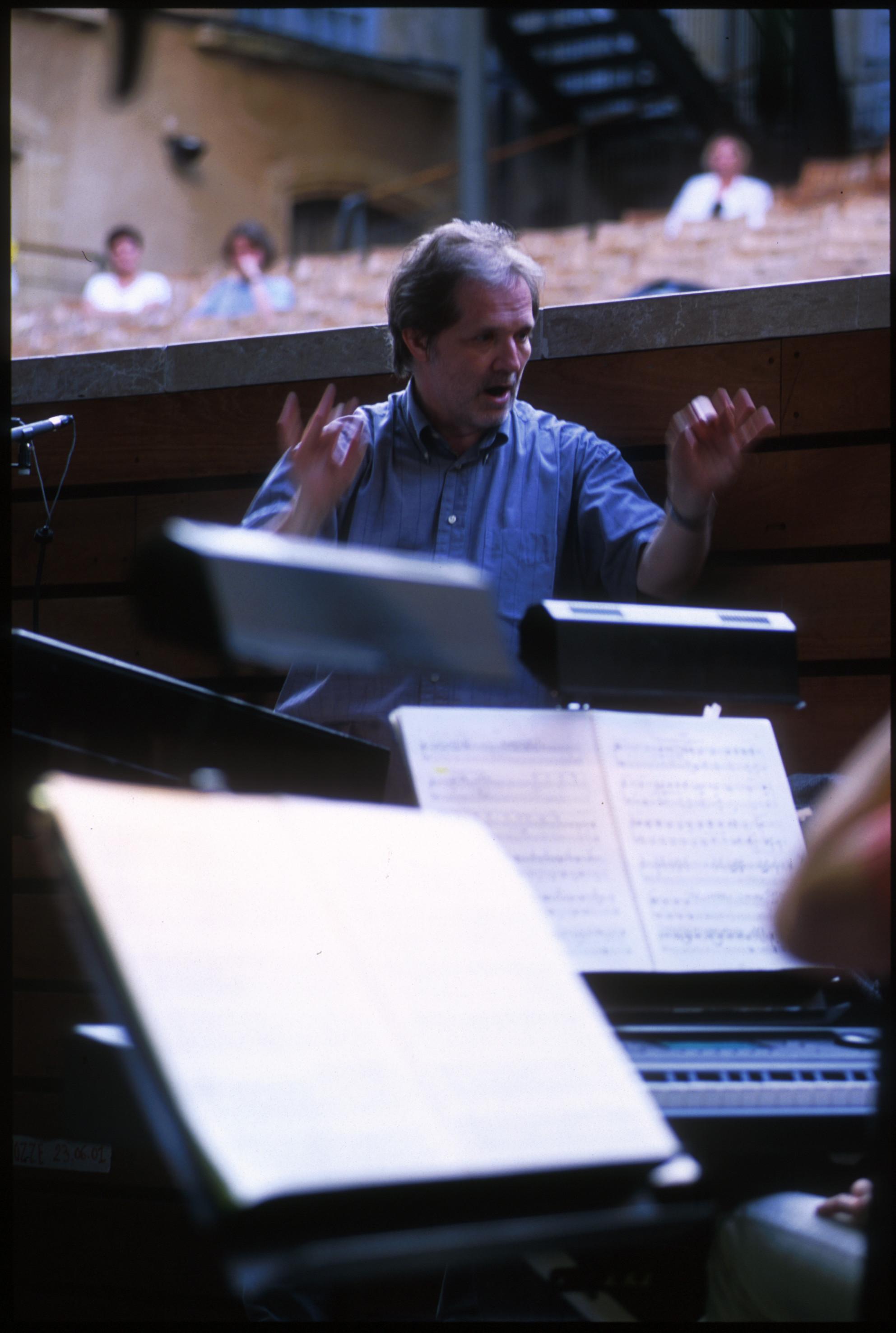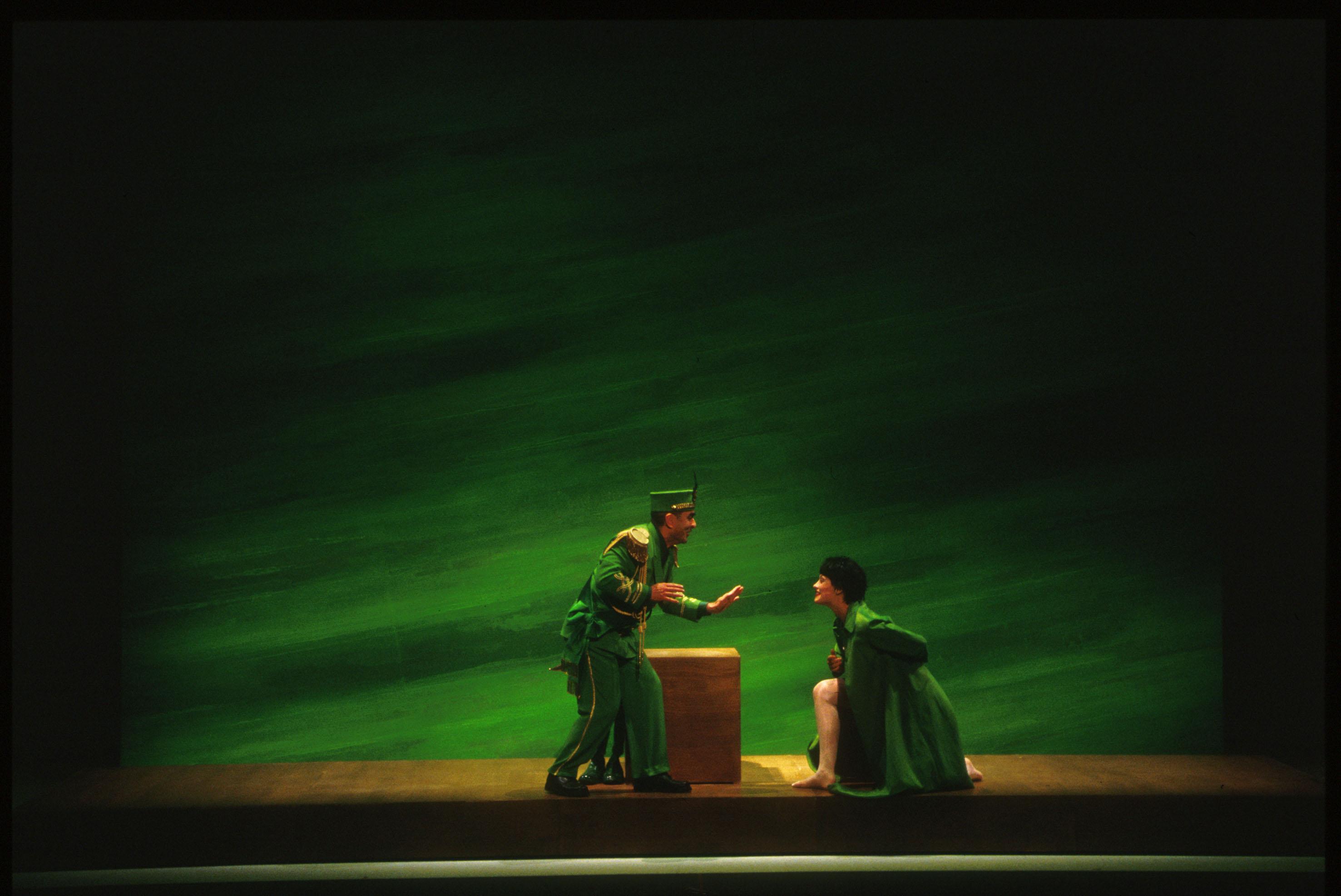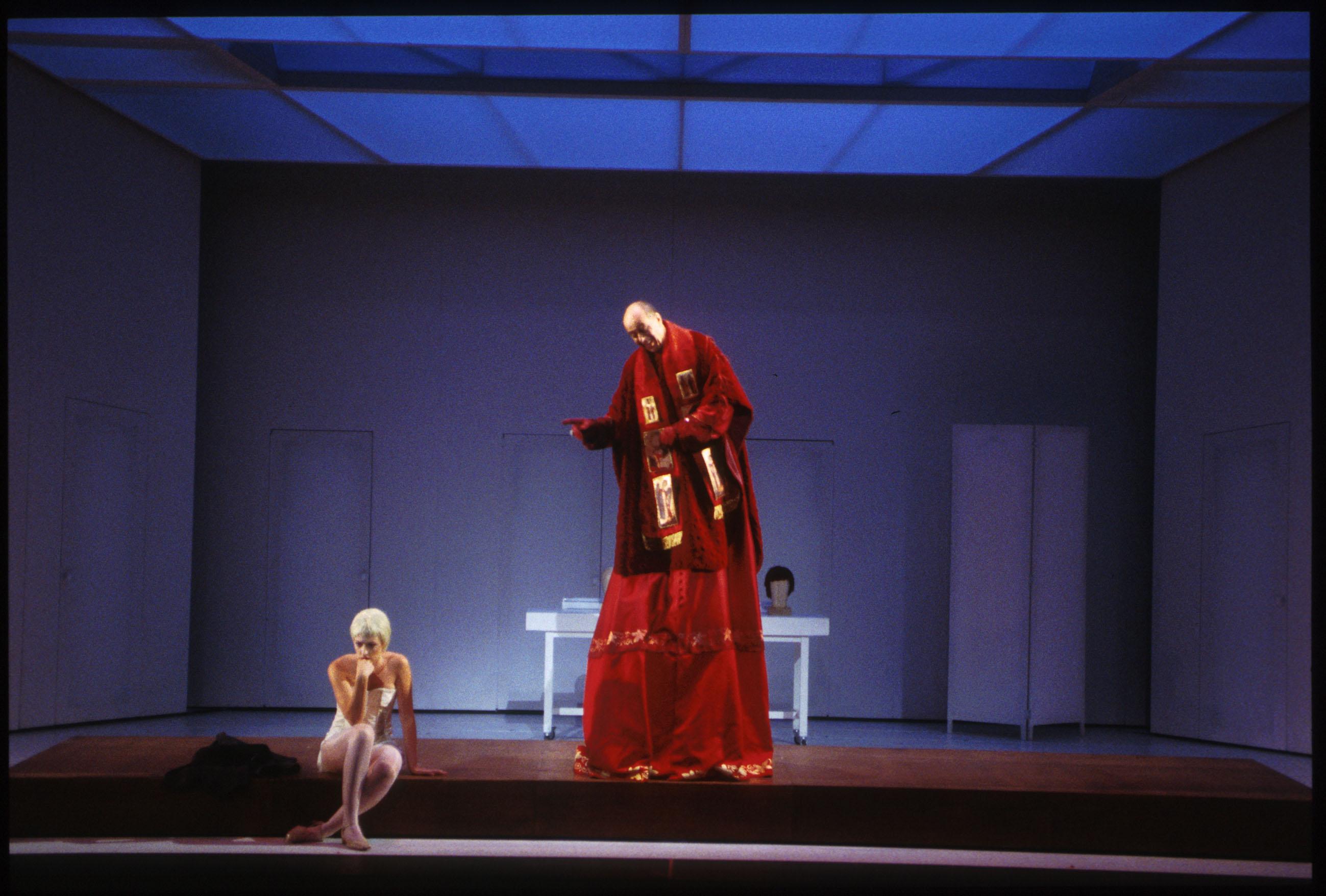TRIBUTE TO PETER EÖTVÖS
Share
It is with great sadness that we learned of the death of Peter Eötvös this past Sunday, 24 March. He was a major opera composer, musical director and educator of our time, and a tireless promoter of contemporary music. Head of the Ensemble intercontemporain from 1978 to 1991, and a close collaborator with Karlheinz Stockhausen and Pierre Boulez, he also leaves behind numerous operatic compositions. His appearances at Aix-en-Provence, especially for the premiere of his second opera, Le Balcon (2002), helped to make the Festival a major centre for contemporary opera in the twenty-first century.
This Hungarian composer and conductor, born in Transylvania in 1944, developed his career in Europe during the Cold War and the musical fervour of 1960s Germany. Influenced by the work of his compatriot Béla Bartók — in particular, Bluebeard’s Castle — he trained at the Franz Liszt Academy (Budapest) before moving to the West, to Cologne, in 1966. There he encountered Karlheinz Stockhausen and his music, and worked for more than a decade at the electronic music studio of the Cologne Radio. A prestigious conductor of contemporary music, including the premiere of Stockhausen’s Donnerstag aus Licht (1981), he conducted the inaugural concert of the Ensemble intercontemporain at IRCAM (1978) and remained the EIC’s artistic director until 1991.
This career was coupled with a vast production of works of all kinds, especially for opera. From a young age, Peter Eötvös composed film music and was hired as a repetiteur for theatrical singers, thus shaping his taste for musical dramaturgy. From 1998 to 2021, he composed thirteen operas in a variety of languages and on extremely diverse librettos, confronting a multitude of styles and cultures. Today, his works are among the most frequently performed operas by a contemporary composer, and have been staged and re-staged in various productions. Following Peter Eötvös’ remarkable Three Sisters (1998) based on Chekhov, Stéphane Lissner commissioned a second opera from him for the Festival d’Aix-en-Provence in 2002: Le Balcon, based on the play by Jean Genet. The opera premiered on 5 July 2002 at the Théâtre de l’Archevêché, opening the Festival and illustrating the institution’s desire to place contemporary music and creation at the heart of its repertoire.
Originally conducted by Peter Eötvös himself at the head of the Ensemble intercontemporain, this opera in ten scenes remains very faithful to Genet’s text. As a revolution rumbles outside, representatives of Justice, the Church, the Police and the Army have taken refuge in the brothel the Grand Balcon, in which a social masquerade unfolds — as, in the words of Genet, a ‘glorification of Image and Reflection’ — until power is overturned and seized by the madam of the Grand Balcon, Madame Irma.
When I agreed to compose Le Balcon for Aix-en-Provence, I immediately thought of the other forms that theatre took for me (comedy, cabaret), and I considered making Genet’s play into a sort of operetta, in the spirit of Offenbach.
Stanislas Nordey, director and co-writer of the opera, and set designer Emmanuel Clolus created a set filled with multiple mirrors that explore and question the reality and portrayals of the situation. The musical dramaturgy contrasts the world inside — the brothel, a musical salon where soloists from the EIC accompany the singers on stage, in a chamber ensemble — and the world outside — a city besieged by insurgents. The striking diction of the singers, in a style sometimes close to chanson, against a backdrop of jazz and baroque references, makes the sung speech almost natural and limpid, highlighting the innocence and the excess of the characters. The work, which premiered in Aix, has continued its life on European opera stages in various productions — up to its recent revival in 2014 at the Théâtre de l’Athénée (Paris) under the musical direction of Maxime Pascal.
Peter Eötvös remained a companion of the Festival, and encouraged contemporary creation as both a converyor of knowledge and an educator — an activity that was particularly dear to him. In 2011, he led a session of the Opera Creation Workshop of the Académie Européenne de Musique du Festival d’Aix. This workshop brings together artists from all disciplines who are involved in the making of operas, to examine the place of interdisciplinarity in operatic creation.
This generation of young creators is very well-informed. They already have a great deal of experience in their art. What matters to me is to find out what I can share from my fifty years of experience. We have here 16 young artists, including about 10 composers, who are at the threshold of their career. I am very much like them. I give them answers and at the same time, I learn a lot from them. It’s a very intense dialogue.
Peter Eötvös, in an interview by Patrick de Maria, La Marseillaise, 1 July 2011
Optimistic about the future of operatic creation, Peter Eötvös demonstrated throughout his career that it is possible and necessary to create opera in the twenty-first century – not only via public performances, but also through the education of the audiences and creators of tomorrow. The Festival d’Aix pays tribute to this brilliant and humanistic figure, who for many years shared and supported the Festival’s commitment to promote contemporary operatic music. Pierre Audi, who had a longstanding and special artistic relationship with Peter Eötvös, and the entire Festival d’Aix extend their thoughts to his family and loved ones.
Listen to Les archives Peter Eötvös on France Musique

Peter Eötvös - Festival d'Aix-en-Provence 2002
© Elisabeth Carecchio
Peter Eötvös - Festival d'Aix-en-Provence 2011
© Jean-Claude Carbonne

